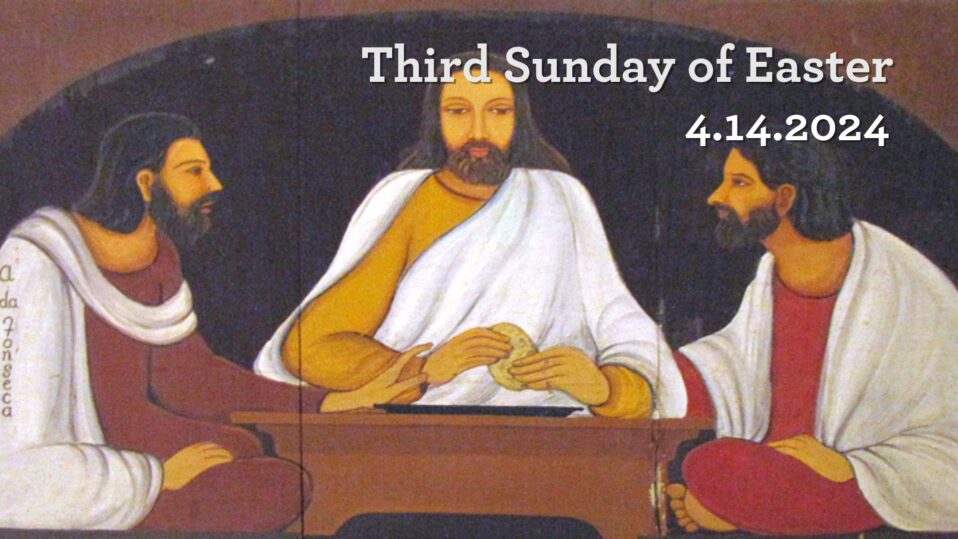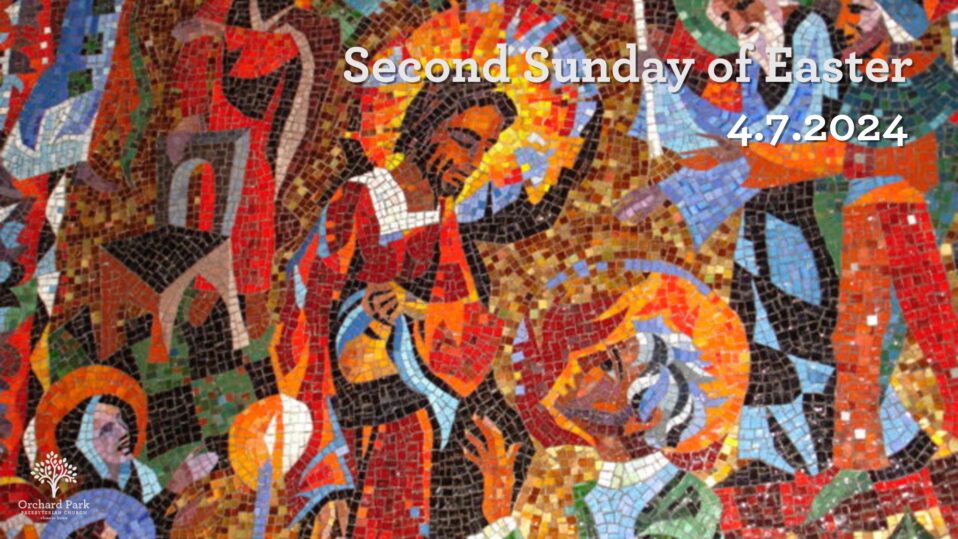My ordination service to be ordained as a Minister of the Word and Sacrament took place 23 years ago this summer. It was a great day. My childhood piano teacher came, my whole family was there, and it was in the church where I was raised and had supported for my seminary education. There are a few special elements that take place at an ordination service. One of the pieces that is very meaningful is when the newly minted pastor receives a charge from a mentor. It’s an honor to be asked to give the charge and it’s very meaningful to the recipient.
My charge was given by my youth pastor, who later helped me find a job working at new church development when I was miserable working for State government. Sue was the only female pastor I had ever known and for me, she was a trailblazer. For my charge, she brought an object lesson, which I am sure helped me remember it.
She brought a set of horse reigns and she said, “ministry is like handling horse reigns when riding a horse, it’s all about knowing when to hold on more tightly and when to let loose. You must decide when you need to tighten your reigns and when you need to ease up. How you manage your reigns will impact your ministry and your life.”
Reverend Stanly Ott was a consultant who made the rounds throughout the country about 12 years ago helping Mainline churches re-imagine their congregations and in one of his lessons he used the phrase –“tight-loose.” His lesson was similar to Sue’s that in ministry you have to decide what you hold on tightly to and what you can let loose.
This concept isn’t unique to ministry. Think about raising your kids or your place of work, or supporting elderly parents, anywhere where you are in place of responsibility. What happens if you hold on too tight? What happens if you pull back on the reigns or are in a constant state of halting? Pulling back the reigns might come in phrases like, “that’s too risky, that’s not safe, that’s too much, that’s not right, that’s too big, that’s too hard, I’m not sure.”
What happens if you let the reigns go and you just let whatever will happens happen? Loosening up on the reigns may be evident when you say things like, “let’s see what happens, let’s roll the dice, let’s give this a try, let’s let that go.”
Both tightening and loosening are risky decisions, they both have consequences. Finding the right rhythm between the two is a skill that takes decades of trial and error.
When you think about what you know about Jesus, do you think he was someone who held on to his reigns tightly or loosely? The Pharisees had a tight grip on rules, practices and values. Jesus challenges them often to loosen up. The disciples also seem to hold tighter to ideas than Jesus. He seems very comfortable walking in to an outsiders house and have a meal, touching someone with leprosy or talking to a woman alone at well. All of these actions would have caused tension in the minds of both the disciples and the Pharisees.
Take a look at today’s scripture passage from the Gospel of Matthew. Our scripture reading is in the middle of the chapter and is dealing with some pretty serious questions from the Disciples. The first question they ask is about greatness. They come to Jesus and ask a weird question, who is the greatest in heaven? It’s like they are asking who get’s the corner office, who gets the bigger room. How does one advance in heaven? Jesus takes a little child, the lowest, least in the society of the time and says, whoever becomes humble like this one is the greatest in heaven.
Then he moves on rather aggressively and talks about sin, temptations and keeping others from Christ. Jesus is tightening up here. He says “if any of you put a stumbling block, or a temptation before one of these little ones who believe in me, it would be better if a great millstone were fastened around your neck and you were drowned in the sea.”
He goes on share the parable of the lost sheep, saying that “if a shepherd has a 100 sheep and one of them has gone astray, does he not leave the 99 and go on the mountains in search of the one.” This is also a tight parable. It’s not a question of whether or not the shepherd would leave the sheep, he would pack up, risk his life for the lost sheep. It’s an absolute parable- there would never be a reason the shepherd would not go looking.
Then we get to today’s scripture, where again Jesus has some tight instructions about how to handle conflict with a member of the church, or other’s interpret as saying with your brother. Jesus goes through a three-part procedure about how to handle a conflict. Jesus is expanding on the book of Leviticus, “You shall not hate anyone in your heart anyone of your kin.”
Jesus says that the first step is go talk to the person one on one. Share with them your complaint. If they don’t listen then bring a couple of people with you and again have a conversation. Lastly if there is still no reconciliation then take the complaint to the church as a whole.
I like the way David Lose summarizes what the passage teaches us: “People sin. Communities are made up of these sinning people. When that happens and you’re involved, do something about it; namely, go talk to the other person directly like a mature adult, rather than behind his or her back. If that doesn’t work, involve some others of the community” as a way of involving and preserving the larger community that is affected by the dispute. [1]
I think the church can make lots of mistakes, but the biggest mistake it can make is to think that the church is perfect, filled with perfect people, where everyone is immune to bruised egos, vulnerabilities and temptation. Rather the church needs to name and recognize that it is filled with people who are fallible, sinful and broken. We need to be honest about that. We need to support each other in our humanity, hold each other accountable and be authentic. That’s what makes the church sustainable. Too often churches keep secrets, avoid conflict and refrain from accountability, only to end up hurting the church even more.
The same can be true for our families and our working relationships. Secrets, avoidance and resentment only builds up over time. Scripture is there to model in the church how we should treat other in our daily lives.
As Barbara Brown Taylor says, Jesus is letting his disciples know that they need each other– not only for practical reasons, but for spiritual ones as well. “They need each other because two heads are better than one; they need each other because they can accomplish more together than they can apart. They need each other like brothers and sisters need each other, to remind themselves that they belong to one family.”
“When families work right, they are God’s way of teaching us important things, like how to share and how to work together and how to take care of one another. A healthy family has a way of smoothing our rough edges by making us rub up against each other, like tumbling pebbles in a jar. Living with other people, we learn that we cannot have everything our own way. We learn to compromise, giving up some of the things we want so that other people can have some of the things they want, and while it is never easy, learning this give and take is part of learning how to be fully human.”[4]
Last May I drove 7 hours to and from Pennsylvania with 6 Presbyterian ministers. On the way home we got into a discussion on the angst of the state of Mainline churches. Some of my colleagues felt strongly that churches should not put out flags or make statements on their website that take a stand on a social issues, because it takes the focus away from Christ. Other’s felt strongly that by standing in solidarity with one issue or another they were being more Christ like. So which is it? Who is being more like Christ, the one who puts a flag out or the one who chooses not to? This is what I think the disciples are asking at the beginning of the chapter, who is the most important in the kingdom of God, the one who marched in the parade, took a stance on a position, or the one who said, keep your eyes on Jesus?
Based on today’s scripture passage, Jesus answer is “neither of you is more important, but humble yourself as a child, recognizing that being faithful is not about being right, its about being humble enough to admit that you could be wrong. It’s about being on the receiving end of a complaint and listening and asking for forgiveness. It’s about loving someone enough to let them know you are hurt and want to restore your relationship with them. It’s about forgiveness not seven times, but seventy-seven times. It’s about recognizing that when two or more are gathered, Jesus is listening in and blessing the conversation. It’s about remembering that children are watching and expecting us to be more like them.
Hold tight to wonder, let go of worry.
Hold tight to forgiveness, let go of anger.
Hold tight to peace, let go of violence.
Hold tight to love, let go of hate.
Hold tight to each other, for Jesus is with you.
Amen.
Rev. Dr. Shelly Wood



